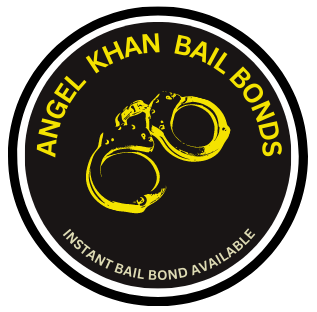Are There Any Bail Bond Limits In Connecticut

Bail Bond Limits for CT
Most bail bond circumstances follow a straightforward pattern, but complications can arise in some cases. Individuals with criminal histories, or those facing severe criminal charges, may have difficulty getting bail bonds. Depending on the case, bail bond limits are set by the judge. When someone you care about is denied bail, you may be in a stressful situation, so Angel Khan Bail Bonds is here to help you.
Revocation of bail: How it Happens
In the pretrial release, conditions are mandated by the court, and non-compliance is a serious offense.
How are bail conditions enforced when you violate them?
Several things can happen if a defendant fails to comply with his bail terms:
Defendant’s arrest warrant: Whenever a defendant fails to appear in court or violates bail conditions, a warrant will be issued for his arrest. In the absence of court action, the warrant remains in effect.
The arrest: If authorities have a warrant for an individual, they can arrest them at any time. A traffic stop officer may arrest a driver if he discovers a warrant during the stop, regardless of whether a ticket is issued.
Taking back custody: The defendant will return to jail after the bail hearing.
The hearing: Before bail is revoked, a hearing will be held where the defendant can give their side of the story. After hearing the defense witness, bail will be revoked by a judge. When bail is revoked, the judge may not revoke bail directly but instead impose a new bail condition.
The revocation of bail: A judge, in some cases, may announce bail revocation. If this is the case, they will serve jail time up to the conclusion of their criminal case. To put it another way, they cannot remain at large for the duration of their case; they must remain locked up.
Revocation of bail: Upon revocation of bail, there may be a severe financial impact on the defendant. If they paid their bail amount, they would not receive a refund. After a bail bonds company posted their bail, the balance would be due to the agency. A defendant who paid $2,000 for a $20k bail bond, if their bail is forfeited, will have to pay $18,000 in cash.
CT Bail Conditions
There have already been a few instances where we mentioned that defendants were subject to various bail conditions while on pretrial release. Is there a clear definition of these terms? The situation determines what should be done.
An example of a bail condition is as follows:
- Victims or witnesses are not contacted•
- Attend all court proceedings
- Keep all other offenses to a minimum
- Provide custody or supervision assistance to an authorized organization
- It is best to avoid travel
- Monitored by electronic devices or under house arrest
- Assess your addiction to drugs and alcohol and comply with recommendations for treatment.

